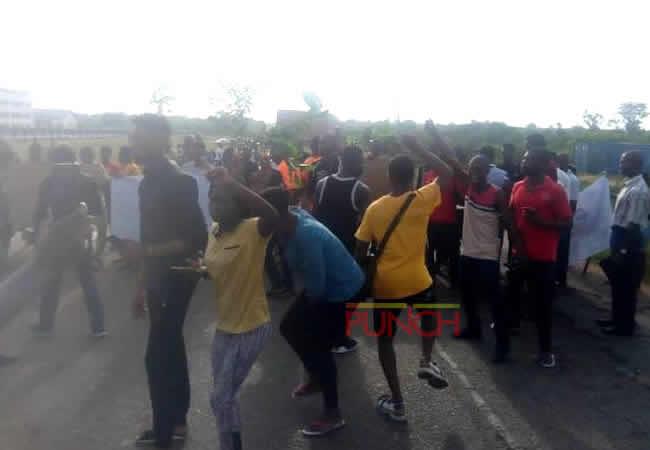Protesters under the banner of the Situation Room for Oil Sector Reforms on Monday staged demonstrations at the offices of the Attorney-General of the Federation, the Independent Corrupt Practices and Other Related Offences Commission (ICPC), and the Code of Conduct Bureau (CCB) in Abuja, demanding the immediate resignation of Engr. Farouk Ahmed, Chief Executive Officer of the Nigerian Midstream and Downstream Petroleum Regulatory Authority (NMDPRA).
The protesters, led by the group’s convener Dan Okwa, accused Ahmed of misappropriating over \$5 million and raised concerns over a conflict of interest involving his son, Faisal Ahmed, who reportedly works with Oando PLC — a company regulated by the NMDPRA. They alleged that Ahmed has turned the regulatory office into a personal empire, enriching himself and his family at the expense of the Nigerian people.
Calling for Ahmed’s immediate suspension, the group insisted that keeping him in office could compromise the integrity of any investigation. They warned that he could interfere with evidence, pressure staff, and obstruct justice.
Their demands include a coordinated investigation by the EFCC, ICPC, and CCB; scrutiny of Ahmed’s asset declarations; forensic audits of regulatory decisions and license allocations; and examination of foreign exchange transactions linked to overseas tuition payments for his children. The group also called for subpoenas of relevant bank and educational records to determine if public funds were diverted for personal use.
They insisted that if the allegations are substantiated, all illegally acquired assets must be seized and Engr. Ahmed must face prosecution under existing anti-corruption laws, including the Criminal Code, the ICPC Act, the Money Laundering Prohibition Act, and the Code of Conduct Bureau Act.
The protest also spotlighted broader concerns about systemic corruption in the NMDPRA. The group is demanding sweeping reforms within the agency, including a full operational audit, digital tracking of regulatory decisions, transparency in procurement, and stricter vetting of appointments.
Vowing to maintain pressure until justice is served, the protesters said they would not accept soft landings or quiet settlements. They declared that their movement is not about scapegoating but about accountability and systemic reform to ensure Nigeria’s oil sector is no longer driven by impunity.
